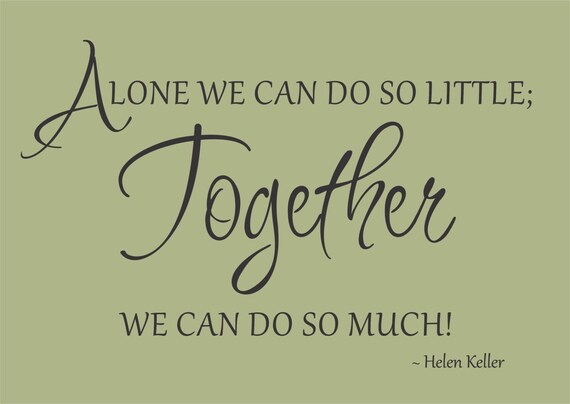 |
| Morning Crew End of the Year Celebration |
The weather has finally shifted in an upward trend, and after a long and arduous winter, the sun is shining and for much longer than before. With the increase in temperature comes an inverse level of student motivation (and teacher motivation for that matter, too). We are all fatigued, and the idea of soaking in some sun has our minds drifting away. How do we motivate our students to stay engaged in the classroom? What instructional practices and activities can help students recognize the value in our content and curriculum even in these final days? These are questions I have been repeatedly asking myself while planning and adjusting plans to complete required tasks, reinforce critical skills, and make each moment matter in the classroom before the semester's end.
As a teacher, what I want most for my students is to have an opportunity to practice what they have learned this year and apply content knowledge in meaningful and memorable ways. Since school will soon be out for the summer, I hope that they can take skills with them that will aid in further acquisitions of knowledge in their daily lives and even in the coming school year. I find myself repeatedly asking my colleagues, using my best Jamie Escalate voice, "How do I reach these kids?"
Engagement comes from being active participants and drivers of their own learning. Students are creative and have inspiring ideas to share if they have the opportunity (and motivation) to connect with the content that has been presented to them. Through careful planning and a great deal of experimenting with what works best with kids ready to run out the door, here are a few successful (and unsuccessful) learning activities my students have enjoyed:
Public Speaking Opportunities
This year, I have had one of my most challenging groups of students - not behavior wise but regarding their motivation. Utilizing class time and completing assigned work has been a bit of an uphill battle, but in spite of their work ethics, they are kind and have an aptitude for self-reflection. Instead of assigning a formal reflection paper, I crafted a Life Lessons speech, which asked them to not only reflect on what they learned about themselves academically but also what legacy they would like to leave on their peers by sharing three life lessons acquired from the research and writing experience that they have now completed. This assignment has by far been the best experience I have had this year and the highest quality product from this group as a whole. I am inspired, motivated, and proud of their work. They excited for an academic break and certainly eager to talk about what they have learned.
While countless students dread public speaking, when they have the right guidelines and the prompts on which to share their stories, the results can be remarkable. Emphasizing the use of stories, encouraging students to bring in pictures and visual aids bursting with images as opposed to words, and providing them with examples lead to reliable results. We all have a story to tell.
Collaborative Group Work
In addition to public speaking,
the second most sought-after skill employers in any field expect potential employees to possess is collaboration. Being able to work with others, problem-solve, compromise, and create a cohesive product are critical attributes for a student in the 21st century to present. Group work also creates a more enjoyable learning experience and passes the time faster than one realizes.
The greatest obstacle that I find with group work is productivity. To help students visualize their productivity level and motivate them to engage more meaningfully with one another, I have created task charts that I project on the board, allowing each group knows what has been completed and what still needs to be done. These task charts also serve as a visual reminder for me to conference with groups, guide student learning as needed, and hold students accountable. Throughout the current group project my sophomores are completing, students are asked to self-evaluate themselves as individuals and members of groups. These self-evaluations completed via Google Forms has provided me with information on which to conference and has encouraged student-teacher dialogue as well as student-student dialogue. When students are communicating and holding each other accountable for their quality of work, strong results will follow.
Podcasting
With only one week left in the semester, I have found that I have run out of time. This school year, my district shifted the calendar forward so that we could end the first semester before Christmas. This schedule has been wonderful, but it has made the end of the school year even more hectic than it normally is. As a result, the time has slipped quickly away. To spur students to engage in more self-directed reading, I wanted to squeeze in one more unit but now lack the time to have students complete a book talk presentation. How do I bolster excitement among students to discuss their books, share reading success stories with their peers, and keep them engaged?
To encourage students to demonstrate their gained knowledge after reading an independent book, I am experimenting with podcasting. By asking students guiding questions, which encourage them to demonstrate their summarizing, inferring, and connecting skills, I am having students create podcasts about their books. These podcasts will be posted for everyone in the class to access via Google Classroom. Once students have shared their work, they will be required to listen to several of their classmates' podcasts, learn about other books, and discuss reading that they enjoyed doing! I am hoping that this exercise will further interest in reading independently and inspire a few students to pick up a book this summer as they sit by swimming pools. Being shared digitally will also consume less class time and has provided students with a different medium on which to demonstrate communication skills. I am eager to hear their work!
Soundtrap and
Vocaroo are great and simple tools to use for Podcasting!
Revision
Reread and revise! These are tasks we ask our students to complete every time they write an essay (or an email for that matter). Do they willingly revise? Typically not. Engaging students in revision has been a crusade of mine this year. I have tried a variety of different methods and have still not found the activity that produces the level of engagement that I hope to see in my students. What has helped is crafting a detailed revision form that requires students to record the number and type of comments that I provide. By asking students to read my comments and respond to them has increased the number of revised papers that are resubmitted to me. Unfortunately, global revision is still not an activity that I would say my students are completing because they are motivated to do so, but I have seen progress.
One of my colleagues has stopped marking comma splices and started incorporating questioning in her comments. She requires students to respond to her questions and identify their own mistakes. I love this idea. My goal is to find ways for students to truly want to revise their work. While I have noticed positive results and heard students admit to how much revision has helped them with the I-Search project they complete in Junior English, I will still look for creative ways to inspire intrinsic motivation about revisions next year.
Reflection
I am always amazed at the candor with which students will share their self-assessments. Teens are unapologetically honest with their assessments - especially of themselves. With the correct prompt that encourages true reflection of self, students are willing to divulge their sentiments on a course, the content, and their own efforts, which in itself can be the greatest lesson they will learn all semester. Metacognitive thinking, assessing their grit and perseverance when given challenging tasks, and identifying what skills they have truly acquired are important aspects of the learning process and can provide students with time to truly consider how much they have (or in few cases have not) grown academically, personally, and in their pursuit of their own self-understanding. High school is a turbulent time of change and growth (let's be honest, adulthood is, too). I love encouraging my students to write reflections at the end of the year. Having students submit their reflections to websites like
https://www.futureme.org add a wonderful layer as their reflections will revisit them on designated days and in the moments that they need to self-reflect again (such as the first day of their senior year of high school). I am excited to read the final products that my students will pose to themselves and me at the end of this school year, which is shocking only a week and a half away.
 |
| Senior Speech Captains! Time has flown. |
I am in awe of how fast the time has flown by this year. Since becoming a mother, the time has hit the accelerate button all too much. Each moment is precious with family, friends, and with students. What I have come to learn from these last few weeks is that while it can be exhausting keeping students in their seats and maintaining some semblance of learning, students will surprise us with how much they have learned and the willingness with which they will speak their minds if given the opportunity and tangible tasks that motivate them to keep the pens and their ideas flowing.
 |
| Time certainly is flying! |


































